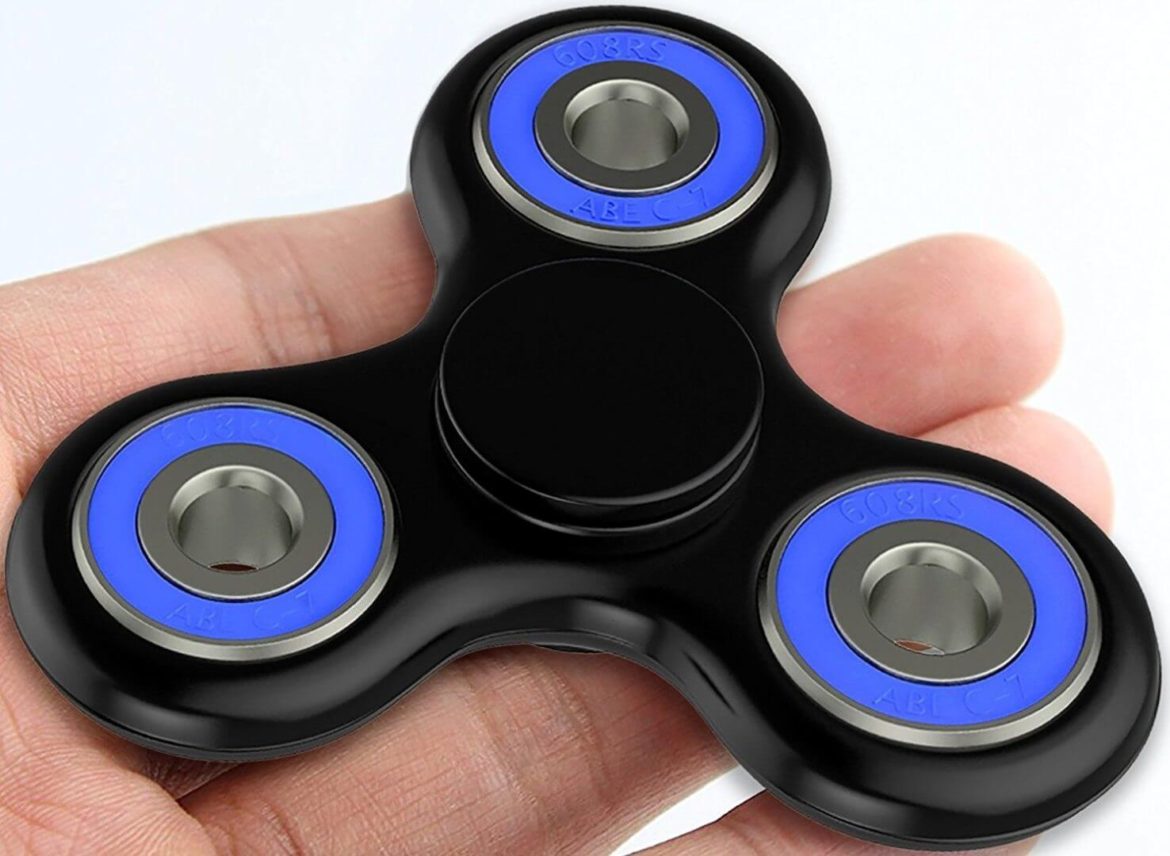
CNBC: “If you don’t have kids, you’ve probably never heard of the fidget spinner. But if you do, you may have recently been dragged to a toy store or 7-Eleven to purchase this latest must-have gadget.
Fidget spinners, made from plastic or metal with a bearing in the center and several prongs that spin around it, are intended for mindless play while working or sitting in class.
They’ve been around for years, but recently exploded in popularity — worrying parents and annoying teachers so much some schools have even banned the toy. As one teacher blogged, “The only thing my students seem to focus on… is the spinner, itself, and not their work. It’s like a friggin’ siren song.”
According to Google trends, online searches for fidget spinners began spiking in April. The inventor of the device can’t explain the surge in interest (though it may have something to do with the mesmerizing YouTube videos of fidget spinner hacks and tricks). Of their appeal, one Washington, DC third grader, Will Hamilton, told me, “All you have to do is spin it and you can do all sorts of tricks.” He added: “Pokémon Go is dying and fidget spinners are the new cool thing.”
The devices are being marketed as a panacea for everything from stress and ADHD to anxiety and autism, as you can see in the Amazon offerings above. The basic claim is that spinning the toy in one’s hands helps increase focus. But — as is so often the case — there’s little science to back these claims up.
What we know about gadgets and attention
No one’s ever studied the impact of fidget spinners specifically on mental health or cognitive functioning. And the related research here isn’t all that promising either.
For example, there is some evidence that encouraging children with ADHD to squirm and move their limbs can help direct their focus rather than making them sit still. But that study looked at kids’ physical activity, not a small spinning device that barely requires any movement. And kids without ADHD didn’t benefit from the extra squirming.
Mark Rapport, a University of Central Florida clinical psychologist who helped run that study, told Vox that in the absence of any research focused on fidget spinners, it’s really hard to say whether the toys will help kids with ADHD.
He did conjecture, however, that the devices may do more harm than good.
“Using a spinner-like gadget is more likely to serve as a distraction than a benefit for individuals with ADHD,” he said, since it takes attention away from what kids should be focused on. He finds full body movement — like cycling or running — engages the brain regions involved in focus. That’s not the same as a flick of the thumb.
There is a body of evidence from occupational therapy on other “sensory approaches” to improve mental health, which have also gained popularity over the past decade. The idea is that engaging the senses through smell, sound, or touch — using aromatherapies, music, fidget toys, or fabrics — can calm people, relieve distress, and help regulate emotions.
But when researchers looked at the science on the effectiveness of these approaches in this 2015 review, they found the studies were generally too low quality and potentially biased to draw firm conclusions. So there’s little proof fidgeting devices would be useful on the stress relief front, either.
Interestingly, the inventor of the device, Catherine Hettinger, told Money magazine that fidget spinners were actually conceived as a way to keep kids out of trouble — not as a mental health aid or ADHD treatment. Hettinger got the idea while visiting Israel and watching children throw stones at police officers. “[Fidget spinners] started as a way of promoting peace,” she said.
That seems like a worthy goal, though the chances of the toys promoting peace seem even more remote than the chances they’ll help treat ADHD.
As for the breathless worry among parents about how fidget spinners might undermine kids’ learning, there are probably bigger threats to focus we should be worrying about, like cell phones.
“There is very compelling evidence that constantly checking for messages and updates significantly interferes with your ability to concentrate, which in turn impairs learning,” Rapport said. When you put a lowly fidget spinner next to a glossy iPhone, with its brightly colored apps, the plastic trinket looks like a toy your grandfather might have enjoyed.”




